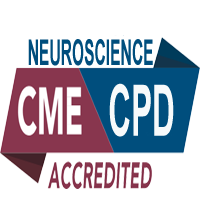
Chitrangada Das Mukhopadhyay
Indian Institute of Engineering Science and Technology, India
Title: Novel Neurorestorative Therapy for Neurodegenerative diseases
Biography
Biography: Chitrangada Das Mukhopadhyay
Abstract
New research shows that an overactive immune system plays a powerful role in causing central nervous system inflammation and the destruction of neurons. It is hypothesized that nonsteroidal anti-inflammatory agents that cross the blood brain barrier could halt the release of these damaging immune factors and reduce risk of developing Alzheimer’s disease (AD). Present FDA approved medications for AD can’t reverse the natural course of the disease. A natural antioxidant, turmeric, plays a protective role in AD through immunomodulation. Epidemiological studies in India, where turmeric consumption is widespread, suggest it has the lowest prevalence rates of AD in the world. Preclinical research work has already established the effectiveness of curcumin in lowering Aβ loads, alleviating neuroinflammation, preserving neurones and synapses and preventing hyperphosphorylation of tau proteins. However, because of poor bioavailability of curcumin and rapid biotransformation in blood, translation of curcumin’s effectiveness in clinical settings is not fully observed. Encapsulation of curcumin bioactive compounds in nanopraticles which can cross blood brain barrier plays a significant role in neurorestoration by inhibiting glial proliferation and Aβ plaque formation. Curcumin C3 complex in patients with mild to moderate stage of the disease is being tried to understand the efficacy [through AD Assessment Scale, cognitive subscale (ADASCog), Neuropsychiatric Inventory (NPI), Activities of Daily Living Scale (ADCS-ADL)] the mechanism of action of curcumin (cholesterol levels, CSF isoprostanes, alpha-1-antichymotrypsin, C-reactive protein, tau, Aβ1–40 and Aβ1–42). A 24 week randomized double-blinded, placebo-controlled study of two doses of curcumin in persons with mild-to-moderate AD was promising.

